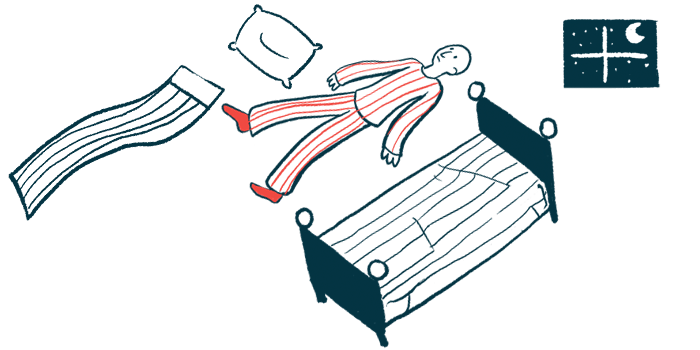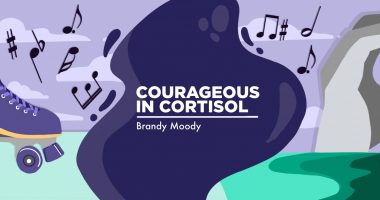Sleep brain waves affected by high cortisol, ACTH in Cushing’s: Study
Brain activity changes seen on EEG especially during first half of sleep cycle

People with Cushing’s syndrome, which is caused by excessive levels of the hormone cortisol in the body, may experience changes in brain activity during sleep, especially in the first half of their sleep cycle, a study has found.
Adrenocorticotropic hormone (ACTH), which drives the adrenal glands sitting atop the kidneys to produce cortisol, might also be involved in causing these changes, researchers say.
These findings may help guide doctors in addressing sleep-related challenges as part of a patient’s overall care plan.
The study, “The effects of hypercortisolism on the frequency and magnitude of sleep EEG waves in patients with Cushing syndrome: A spectral analysis study,” was published in the journal Clinical Neurophysiology.
Cortisol helps the body to stay alert but having too much can affect sleep
In Cushing’s syndrome, an excess of cortisol may happen because of medications (exogenous Cushing’s) or due to problems within the body itself that lead to the overproduction of the hormone (endogenous Cushing’s). Cushing’s disease, an ACTH-dependent form of Cushing’s syndrome, is the most common form of endogenous Cushing’s.
Cortisol helps the body stay alert and ready for action during the day. At night, its levels are lower to help the body relax and fall asleep. Having too much cortisol can make it harder to sleep well, among other symptoms.
Naturally, Cushing’s syndrome “is often accompanied by sleep disturbances,” the researchers wrote, adding that “patients are known to have shallower sleep with less slow-wave [deep] sleep.”
During sleep, the brain continues to be active and to generate electrical signals known as brain waves, which change at each sleep stage. They can be recorded with an electroencephalogram (EEG).
By looking at EEG recordings, doctors can determine what stage of sleep a person is in, how long the person stays in each stage, and if there are any unusual patterns that might indicate sleep disturbances.
Evidence on how cortisol affects brain activity during sleep is mixed. To understand what happens in people diagnosed with endogenous Cushing’s syndrome, researchers in Turkey looked at EEG data recorded during the first and last non-rapid eye movement sleep cycles.
The body goes through several cycles of non-rapid eye movement and rapid eye movement, or REM, sleep throughout the night. Non-REM is more prominent early at night, and it includes both light and deep sleep.
The study included 12 people with ACTH-dependent Cushing’s syndrome, 20 with ACTH-independent Cushing’s syndrome, and 16 healthy (control) individuals of the same age and sex. All were adults.
Midnight cortisol levels significantly higher in people with Cushing’s syndrome
As expected, midnight cortisol levels were significantly higher in people with Cushing’s syndrome (both ACTH-dependent and ACTH-independent forms) than in controls.
“In these patients, cortisol levels are expected to be constantly high, without the normal diurnal rhythm of a nighttime fall and morning peak,” the researchers wrote.
When they looked at brain wave patterns, the scientists observed that slow-wave power during the first non-REM cycle was higher in people with Cushing’s syndrome than in controls.
Slow waves generally occur in the deepest stages of sleep, when the body gets the most restorative rest. Brain wave power refers to the strength or intensity of the electrical signals produced by the brain.
In people with ACTH-dependent Cushing’s syndrome, maximum and mean slow-wave power values were significantly higher during the first, but not in the last, non-REM cycle.
“The presence of ACTH in excess plays an effective role in terms of sleep in the first hours of the night compared to the last hours. However, this difference was only detected in [slow-wave activity],” the researchers wrote.
It’s possible that both cortisol and ACTH use a negative feedback loop to tone down the levels of corticotropin-releasing hormone (CRH), which also plays a role in the body’s response to stress and in sleep disturbances.
However, “the question remains of why cortisol alone does not have the same effect as ACTH even though it can also suppress CRH via a negative feedback loop,” the researchers wrote.
“Larger studies or experimental models may help to improve our understanding of the effect of ACTH and cortisol on sleep EEG,” they added.








